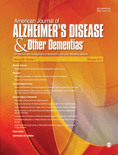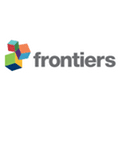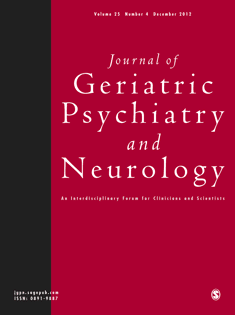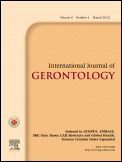
American Journal of Alzheimers Disease and Other Dementias
Scope & Guideline
Innovating solutions for neurodegenerative challenges.
Introduction
Aims and Scopes
- Clinical Research and Interventions:
The journal publishes studies on clinical trials, treatment interventions, and non-pharmacological approaches aimed at improving the quality of life for individuals living with dementia. - Neurobiological and Physiological Studies:
Research on the underlying neurobiological mechanisms of Alzheimer's disease and other dementias, including genetic, biochemical, and neuroimaging studies, is a core focus area. - Caregiver Support and Quality of Life:
The impact of dementia on caregivers, including psychological, social, and economic aspects, is extensively covered, emphasizing the importance of caregiver support and education. - Innovative Assessment and Diagnostic Tools:
The journal highlights the development and validation of new diagnostic tools and assessment methods for early detection and monitoring of cognitive decline. - Cultural and Sociodemographic Factors in Dementia Care:
The influence of cultural, linguistic, and demographic factors on dementia awareness, treatment, and caregiving practices are explored, addressing global perspectives on the issue.
Trending and Emerging
- Technology and Digital Health Solutions:
There is an increasing focus on the use of technology, including digital health solutions and artificial intelligence, for improving diagnosis, monitoring, and support for individuals with dementia. - Non-Pharmacological Interventions:
Research on the effectiveness of non-pharmacological interventions, such as music therapy, exercise, and lifestyle modifications, has gained prominence, reflecting a broader understanding of holistic care. - Gender and Dementia Research:
Emerging studies are examining the impact of gender differences on dementia, including variations in prevalence, symptoms, and caregiving experiences, highlighting the need for gender-sensitive approaches. - Social and Emotional Well-Being:
There is a growing emphasis on the psychological and emotional dimensions of dementia, particularly the quality of life for both patients and caregivers, and the importance of social support networks. - Impact of COVID-19 on Dementia Care:
The ongoing effects of the COVID-19 pandemic on dementia care, including challenges faced by caregivers and changes in service delivery, have become a significant area of focus.
Declining or Waning
- Pharmacological Treatments:
Research focused on pharmacological treatments for dementia has seen a decrease, possibly due to the limited efficacy of existing medications and a growing interest in non-pharmacological interventions. - Traditional Approaches to Dementia Care:
There appears to be a waning focus on traditional caregiving methods, as newer, evidence-based practices gain traction in the literature. - General Population Studies:
There has been a reduction in studies addressing dementia prevalence in general populations, suggesting a shift towards more targeted research in specific demographics or clinical populations.
Similar Journals

EUROPEAN ARCHIVES OF PSYCHIATRY AND CLINICAL NEUROSCIENCE
Pioneering Research for a Brighter Mental Health FutureEuropean Archives of Psychiatry and Clinical Neuroscience is a prominent peer-reviewed journal published by Springer Heidelberg, focusing on the interdisciplinary aspects of psychiatry and clinical neuroscience. With an ISSN of 0940-1334 and an E-ISSN of 1433-8491, this journal provides a rigorous platform for innovative research spanning biological psychiatry, pharmacology, and various aspects of mental health. The journal boasts a distinguished impact factor that places it in the Q2 category for Biological Psychiatry and Q1 in both Medicine (miscellaneous) and Psychiatry and Mental Health as of 2023, reflecting its significant contribution to the field. Additionally, its Scopus rankings highlight its esteemed position among the top journals, particularly in Medicine and Neuroscience disciplines. Readers can access a wealth of valuable research articles, case studies, and reviews, crucial for advancing understanding and treatment within these vital fields. Initially converged in 1990, the journal continues to evolve and support scholarly dialogue until 2024 and beyond, making it an essential resource for researchers, clinicians, and students alike.

Frontiers in Aging Neuroscience
Advancing Knowledge for a Healthier Brain in Old Age.Frontiers in Aging Neuroscience, published by FRONTIERS MEDIA SA, is a leading open-access journal dedicated to the field of aging neuroscience, with its ISSN being 1663-4365. Since its inception in 2009, this journal has provided a platform for researchers to disseminate their findings on the neurological aspects of aging, addressing critical issues that impact cognition and overall brain health in the elderly population. With a commendable 2023 impact factor, the journal ranks in the Q2 category in both Aging and Cognitive Neuroscience, positioning it among the top-tier publications in these fields. Notably, it is recognized within Scopus, ranking #32 out of 115 in Neuroscience (Cognitive Neuroscience) and #20 out of 38 in the Aging sector, with corresponding percentiles of 72nd and 48th, respectively. As an open-access journal, it promotes unrestricted access to research findings, fostering collaboration and innovation among the academic community. Researchers, professionals, and students alike can explore cutting-edge studies that contribute to understanding the complexities of neurological aging and work towards improving cognitive health in an aging society.

NEUROBIOLOGY OF AGING
Fostering Insight into Aging's Impact on the Nervous SystemNEUROBIOLOGY OF AGING, published by Elsevier Science Inc, is a premier journal dedicated to advancing our understanding of the complex interactions between the aging process and neurobiological mechanisms. With an ISSN of 0197-4580 and E-ISSN 1558-1497, the journal has established itself as a critical resource in the fields of Aging, Developmental Biology, Geriatrics and Gerontology, Clinical Neurology, and Neuroscience. Boasting a Q1 ranking in multiple categories, the journal is positioned within the top echelons of scholarly publication, underscoring its significant impact with an impressive Scopus ranking in various subfields. Committed to disseminating high-quality, peer-reviewed research, NEUROBIOLOGY OF AGING welcomes original articles, reviews, and research notes aiming to uncover the underlying processes of aging on the nervous system, fostering collaboration among researchers, professionals, and students alike. Although primarily subscription-based, the journal continues to play a vital role in shaping the discourse on aging and neurobiology, making it an essential publication for those engaged in this dynamic field.

NEUROPSYCHIATRIE
Pioneering Research in Clinical Psychology and PsychiatryNEUROPSYCHIATRIE, published by SPRINGER WIEN, is a prestigious journal operating from Austria that focuses on advancing the fields of Clinical Psychology and Psychiatry. With an ISSN of 0948-6259 and an E-ISSN of 2194-1327, NEUROPSYCHIATRIE has garnered attention within the academic community, exemplified by its classification in the Q2 category for Clinical Psychology and Q3 for Psychiatry and Mental Health as of 2023. The journal provides a platform for the dissemination of innovative research findings and clinical insights, critical for professionals dedicated to addressing complex neuropsychiatric conditions. Researchers aspiring to explore the intricacies of mental health will find a wealth of knowledge, as evidenced by its Scopus rankings—115th in Clinical Psychology and 260th in Psychiatry and Mental Health—indicating its influential position. Covering a wide range of topics from neurobiology to psychotherapeutic interventions, NEUROPSYCHIATRIE acts as a vital resource, making significant contributions to enhancing clinical practices and fostering interdisciplinary collaborations in mental health.

JOURNAL OF GERIATRIC PSYCHIATRY AND NEUROLOGY
Connecting research and practice in geriatric mental health.JOURNAL OF GERIATRIC PSYCHIATRY AND NEUROLOGY, published by SAGE PUBLICATIONS INC, is a premier academic journal dedicated to advancing the understanding of mental health issues and neurological disorders in the aging population. With an established presence since 1988, this journal stands out in the fields of Geriatrics, Gerontology, Neurology, and Psychiatry, currently positioned in the Q2 category based on 2023 metrics, reflecting its influence and academic rigor. The journal is indexed in major databases and is highly regarded for its contributions, as evidenced by its strong Scopus rankings. It serves as an essential resource for researchers, clinicians, and students, offering insightful articles that explore the complex interplay between aging, mental health, and neurological conditions. Although it does not provide open access, it continues to be a vital source of scholarly knowledge for those dedicated to enhancing the well-being of the elderly population.

International Journal of Gerontology
Fostering collaboration in the field of gerontology.International Journal of Gerontology is a distinguished peer-reviewed journal dedicated to advancing the field of gerontology and addressing the multifaceted challenges associated with aging. Published by the Taiwan Society of Geriatric Emergency & Critical Care Medicine, this innovative journal has been an open-access platform since 2018, ensuring that vital research is accessible to a global audience. With an ISSN of 1873-9598, it serves as a crucial resource for researchers and practitioners focused on the biological, psychological, and social aspects of aging. The journal is indexed in Scopus with a rank of #103/116 in the Medicine category (Geriatrics and Gerontology) as of 2023, placing it in the Q4 quartile—a testament to its evolving impact in the field. Spanning works published from 2007 to 2024, the International Journal of Gerontology facilitates the dissemination of critical research findings and clinical practices that inform and enhance geriatric care and research methodologies.

Alzheimer's & Dementia: Diagnosis, Assessment & Disease Monitoring
Pioneering insights for a brighter future in Alzheimer's research.Alzheimer's & Dementia: Diagnosis, Assessment & Disease Monitoring, published by WILEY, stands at the forefront of research in the fields of neurology and psychiatry. As an Open Access journal since 2015, it fosters transparency and accessibility in sharing critical knowledge pertaining to the diagnosis, assessment, and monitoring of Alzheimer’s disease and related dementias. With an impressive impact factor reflected in its Q1 rankings in both Neurology (Clinical) and Psychiatry and Mental Health, this journal is recognized for its significant contribution to advancing understanding and improving clinical practices, as evidenced by its Scopus rankings in the top percentiles. Researchers, healthcare professionals, and students are encouraged to engage with the latest findings and methodologies that shape the future of dementia care, enhancing both patient outcomes and the scientific community's response to this pressing health challenge. With its headquarters located in Hoboken, NJ, this journal is a pivotal platform for disseminating high-quality, peer-reviewed research that strives to combat one of the most challenging areas in medicine today.

Journal of Alzheimers Disease Reports
Exploring New Frontiers in Alzheimer's DiseaseJournal of Alzheimer's Disease Reports, published by IOS PRESS, is an essential open-access platform dedicated to advancing research in the fields of clinical psychology, geriatrics, gerontology, neuroscience, and psychiatry. Since its inception in 2017, this journal has rapidly gained recognition, achieving a commendable status reflected in its 2023 category quartiles, notably ranking Q2 in Clinical Psychology and Psychiatry and Mental Health. With a sustained commitment to disseminating high-quality research and facilitating collaboration among scientists, the journal offers insights into the critical aspects of Alzheimer's disease and related cognitive disorders. Given its positions in the Scopus ranks, it serves as a crucial resource for academics and practitioners alike, empowering them to contribute effectively to the ongoing discourse in cognitive health. The journal embraces open access, ensuring that all research findings are freely available to the global community, thereby enhancing visibility and engagement. With a focus on fostering innovation and knowledge transfer, Journal of Alzheimer's Disease Reports is poised to make an enduring impact in the field of dementia research.

Cerebral Circulation-Cognition and Behavior
Illuminating the Pathways of Thought and BehaviorCerebral Circulation-Cognition and Behavior is an impactful journal published by Elsevier that focuses on the intersections of cerebral circulation, cognitive function, and behavioral science. Since its establishment in 2020, the journal has provided a vital platform for researchers and professionals in the fields of Behavioral Neuroscience, Biological Psychiatry, and Cognitive Neuroscience. With a current classification in the Q3 quartile across several neuroscience categories and a promising trajectory during its converged years (2020-2024), the journal highlights significant advancements in our understanding of the neural underpinnings of behavior. Although it is not open access, its commitment to quality research makes it an essential resource for anyone engaged in neurological, cognitive, and psychiatric studies. As discoveries in these fields continue to grow, Cerebral Circulation-Cognition and Behavior remains dedicated to disseminating influential findings that bridge the gap between cognition, behavior, and neural health.

Schizophrenia Research
Innovative research for a deeper understanding of mental health.Schizophrenia Research is a premier academic journal focused on innovative research within the domain of psychiatry and mental health, published by Elsevier. With its ISSN 0920-9964 and E-ISSN 1573-2509, the journal has established a strong presence since its inception in 1988, evolving to publish cutting-edge findings up to 2024. Positioned in Q1 in Psychiatry and Mental Health and Q2 in Biological Psychiatry, it ranks impressively in the 83rd percentile among its peers, according to Scopus, ranking #93/567 in the field of Medicine, and #12/51 in Neuroscience. This journal serves as a vital platform for the dissemination of significant scientific advancements and theoretical insights into schizophrenia, fostering a deeper understanding of mental illnesses. Although it operates on a subscription basis, its critical role in informing both ongoing research and clinical practices cannot be overstated, making it an essential resource for researchers, clinicians, and students alike. Join a global community dedicated to improving mental health outcomes and advancing the study of schizophrenia through this reputable publication.